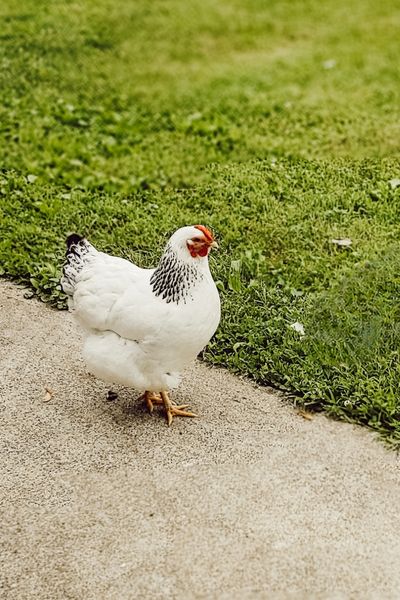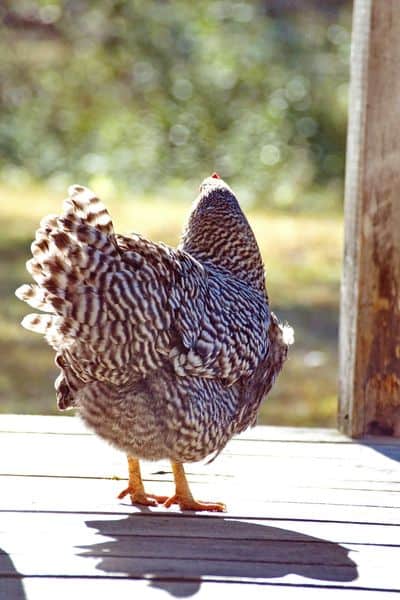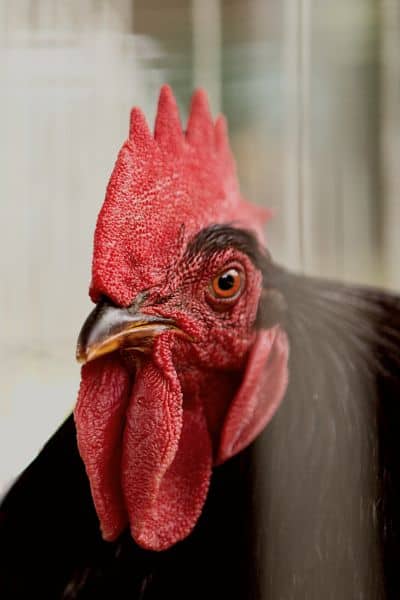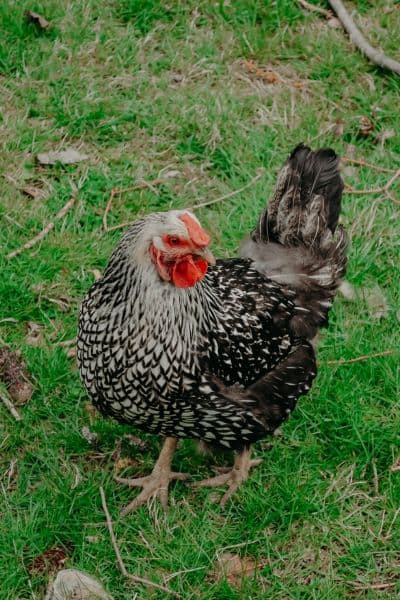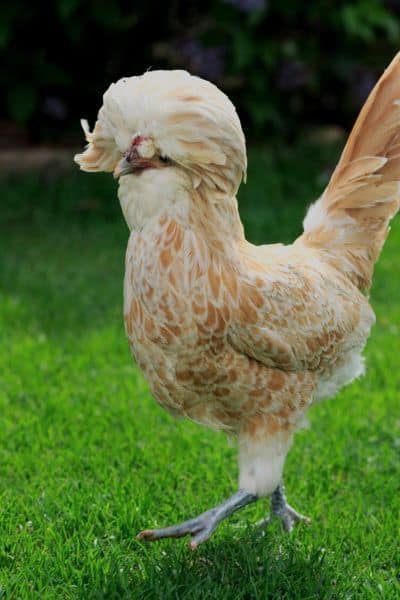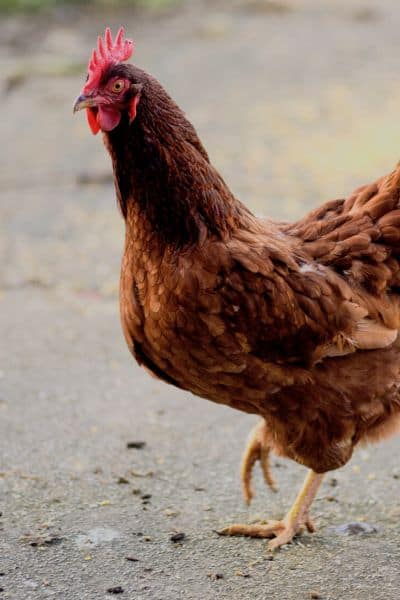Do All Chickens Lay Eggs, 4 Chicken Types You Need To Know
So the straightforward answer to the question do all chickens lay eggs: is yes….. BUT! — I know annoying right?
All HENS do lay eggs because that is how they reproduce. BUT not all chicken breeds lay at the same consistency.
Just to be clear ~ roosters do NOT lay eggs ~ they are a boy boys don’t make babies. Eggs are the start of chicken babies if they are fertilized. (Seem silly that I would say that. Well people are asking so I have to be clear)… ok moving on.
There are some breeds like the white leghorns or Rhode Island reds that are amazing at laying eggs (250-300 eggs a year). Then there are some breeds like Polish or Silkie that will lay far fewer eggs than most breeds. — These breeds tend to be popular because of their unique looks or better temperament.
If you want to make sure you get lots of fresh eggs on your homestead make sure to read this post to find a good laying breed.
In this blog post, I’ll help you understand the different types of chickens and give you want you need to know to find the best-laying hens for your homestead.
Understanding the Different Types of Chickens
There isn’t really a good word for this. It’s not really a class (there are breed classes that chickens are shown in so that’s not it) but it’s more of an “intention group” meaning what was the main goal of this breed when it was developed. Make sense?
There are egg-laying breeds of chickens, then there are dual-purpose breeds, and then there are meat chickens.
Egg laying: Some breeds, such as the White Leghorn, Rhode Island Red, isa brown, golden comet, and Sussex, have been selectively bred for their egg-laying abilities. These breeds are commonly referred to as “laying hens” due to their consistent egg production. They also tend to start laying a bit earlier than the other breeds.

Top RANKED 13 Best Egg Laying Chickens For Your Backyard Farm – Read The Post
Free Farm Goal Planner!!!
➡️Get my proven system for choosing your farm goals so you don’t get burnt out.
Dual Purpose: These are breeds that are developed to lay eggs but also be able to be eaten. The thing with these breeds is that they take much longer to grow to be a good enough weight to eat. So they are not going to be your first choice if you plan to produce your own meat on your homestead. Think of the meat production as a plus.
Facney: Like I said before there are some chicken breeds, like Silkies, are not known for their egg-laying capabilities. These breeds are often added to backyard flocks for their ornamental look and friendly temperament rather than the number of eggs they lay.
Meat Birds: These lay hardly anything in comparison. There are only a few breeds of chickens or other poultry but either way, these breeds or species tend to lay less than 100 eggs per year.

Factors Affecting Egg Production
There are several main factors that influence a hen’s ability to lay eggs. These factors include age, health, diet, hours of daylight, and stress levels.
Age of the hen. – Young hens (called pullets) don’t start laying their first eggs until 5 to 6 months of age. Some you may get to lay as early as 16 weeks of age but if you are lucky. But one thing to note is that if they will be at that season of starting to lay during the cold weather time of year they will take much longer to start laying eggs.
Personal experience
We would get our chicks for 4-H and fair projects as early as January and they would start laying right on schedule. — But since having them be a certain age for the fair is not an issue in life anymore I wait until a more convenient season to raise chicks. Well, this puts our new younger chickens ready to start laying eggs pretty close to the winter months and well below the required 14-16 hours of light in a 24-hour period to lay.
As they mature to peak production, their egg production increases, the egg size gets bigger, and egg production peaks for the first year to two years.
However, older hens egg production will start to decline typically after they turn 2.5 to 3 years old.
Stress can cause lower egg numbers.
Heat stress – is going to be a key factor in egg laying during the summer. Its typically caused by high heat (95 degrees or higher) for long periods of time. Here are some tips to help your backyard chickens get through a hot season.
- Provide them with lots of clean water.
- Have lots of shade for them to be able to get to.
- Close them into the shaded area if necessary. — Yes chickens love to free range but in these hot seasons, it’s more important to do what is best for their health. Some chickens will be roaming in the sun for hours and not go to the shade. (They are dumb birds only focused on instant gratification. Sorry not sorry) We have an entire coop run under trees so if we ever had a really hot season I can close them in that area.
- **If your chicken coop is not under shade DO NOT close them in there for shade. The lack of ventilation would be even worse.**
Stress from predators – can also cause your chickens to not lay but this will often take much less time for them to bounce back from.

Poor nutrition – This can happen unintentionally because people are trying to save money by feeding kitchen scraps or getting creative with the combination of grains they are feeding their chickens.
Providing a well-balanced that meets their nutritional needs, such as calcium, is important for healthy egg production. This can be done easily by feeding a complete layer feed instead of feeding a ton of kitchen scraps.
Don’t Know Where To Start With Your Backyard Farm?
Its time to start a backyard farm that fits YOUR dream lifestyle, Backyard Farm Foundation is the answer to setting a clear plan and achievable goals for starting your dream backyard farm or homestead.
ONLY $9!!!!

Not enough daylight hours – This happens naturally and you can read more about it here. But when the natural light source lessons that also slows down the hens reproductive cycle which means less eggs. (Remember, eggs are how they have babies in their mind. I think it’s easy to forget sometimes) You can add artificial lighting to the coop by adding a heat lamp-style socket to the coop and using a normal light bulb to the coop on a timer.
Molting – A chicken will do this about once every 12-18 months. They go through a process of losing all their feathers which seems to happen really overnight. Then they start growing new feathers back in and this takes almost all their energy to do so. Their egg production decreases to literally nothing during this time. – READ MORE ABOUT MOLTING

Understanding the characteristics of different chicken breeds is important for reaching your homestead goals. Don’t just choose a breed because it’s popular or it seems like that’s what is offered. If you are looking to keep chickens for high egg production make sure to get a breed that was meant to do so. Choosing a breed that seems cool to have because it lays blue eggs or looks cute won’t get you there.

